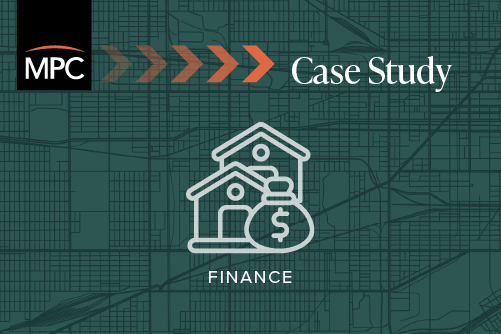Affordable Housing Demolition Tax
Highland Park, Lake County
Finance
The goal of Highland Park’s “teardown” tax is to mitigate the loss of affordable homes from demolition.

Background
The goal of Highland Park’s “teardown” tax is to mitigate the loss of affordable homes from demolition by taxing this activity and allocating the revenue to the City’s Affordable Housing Trust Fund, which is used to help finance various affordable housing initiatives in the city.
In 2001, when the Affordable Housing Trust Fund was proposed, the City of Highland Park Finance Committee worked with the Housing Commission to develop a way to financially support the fund. Several options were considered, including existing revenue sources. However, using these funds would have required siphoning money from other programs or increasing existing taxes. As the Housing Trust Fund was a new entity, the Finance Committee felt it would be best to create a new source of revenue in the form of a demolition tax. The City was sensitive to keeping the tax high enough to be a sufficient revenue generator, but low enough that it would not deter private development. The tax concept was presented to the City Council during an annual budget forum in February 2002. The demolition tax and the ordinance that created the Highland Park Affordable Housing Trust Fund were formally adopted in May 2002.
How it works
The demolition tax applies to all residential demolitions administered by the City’s Building Division. Demolition, defined as the removal or destruction of 50 percent or more of the structure, is measured by a removal of any combination of interior and/or exterior elements. The tax is $10,000 for a single-family home and $3,000 per unit or $10,000, whichever is more, for multi-unit buildings. The tax is paid by the owner before the City issues a demolition permit.
The demolition tax can be waived under some circumstances:
- When the permit applicant has entered into an agreement with the Housing Commission to provide affordable housing in the new structure;
- When the applicant has owned the property for at least five years prior to the demolition and covenants to own the property for the next five years;
- When the demolition is necessary due to a natural disaster; or
- If the property owner is low or moderate-income and qualifies for a medical exception.
Additionally, property owners may be able to defer payment of the demolition tax until an application is submitted for a building permit for the property on which the demolition will occur or until a plan of subdivision is recorded for the property.
Demolition tax revenue
To date the City has raised more than $3.3 million for the Affordable Housing Trust Fund through the demolition tax. Based on the continued increase in residential demolitions in Highland Park, the tax does not appear to be a significant deterrent to development. While this tax has been the most significant source of revenue to the Trust Fund, there may come a time where the City may need to augment funding through other sources to sustain the Trust Fund.
Number of teardowns
- 2014 (January–June 2014): 18 = $134,587
- 2013: 22 = $170,257
- 2012: 16 = $129,172
- 2011: 7 = $60,169
Contact
Department of Community Development, City of Highland Park
847-432-0867, www.cityhpil.com
-
Goal
To help fund the City’s Affordable Housing Trust Fund.
-
Target
Residential demolitions.
-
Financing
$10,000 per single-family home and $3,000 per unit or $10,000, whichever is greater, for multifamily properties. Starting in April 2006, one-third of the revenue has been dedicated to the City’s multi-modal transportation fund.
-
Success
To date, the City has raised over $3.3 million for the Affordable Housing Trust Fund.
-
Lessons learned
It is helpful to have a dedicated source of funding for the affordable housing trust fund.